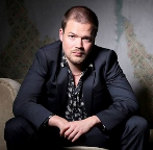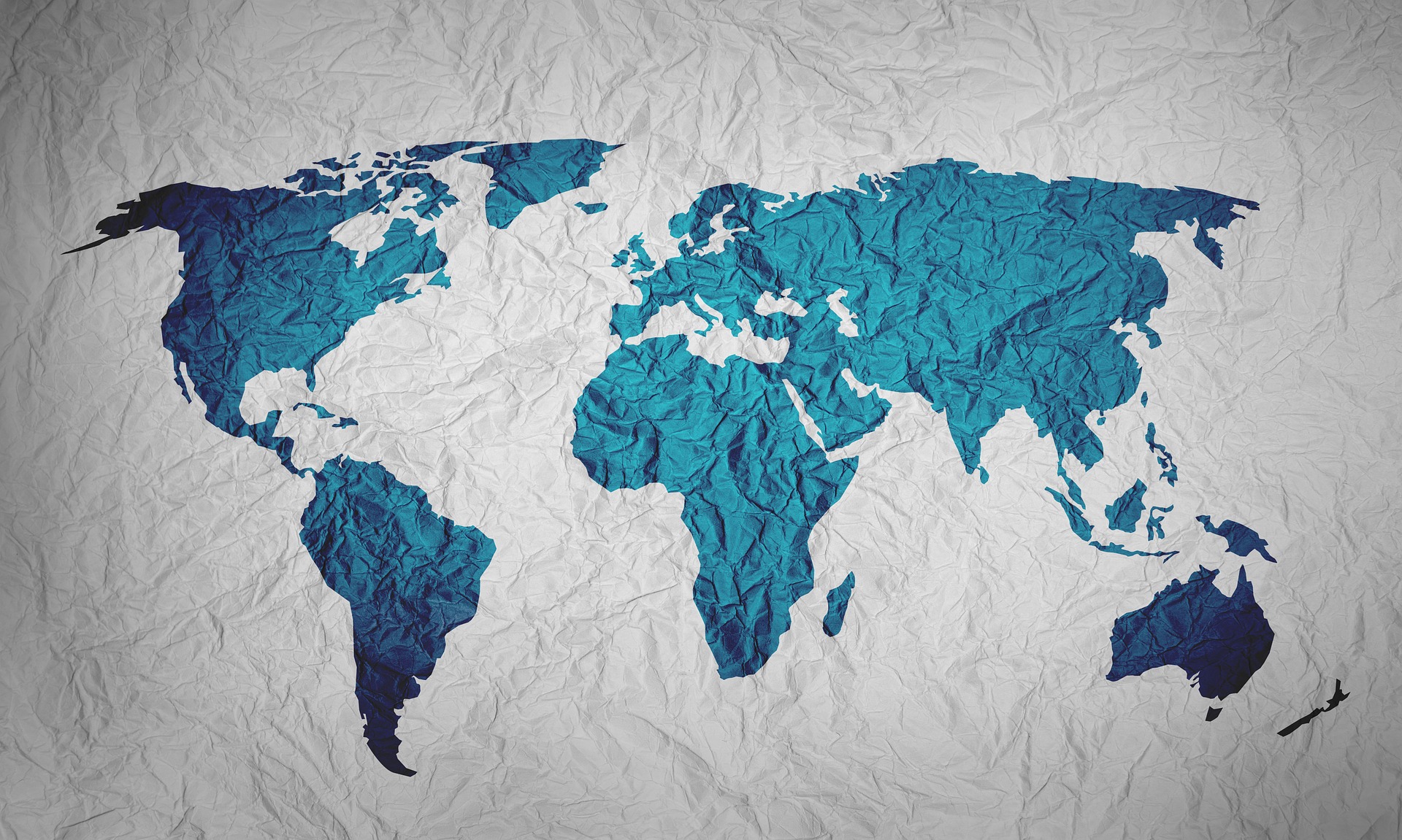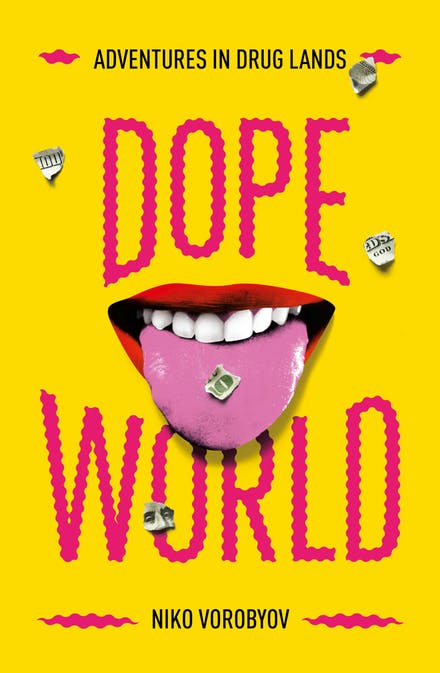“I’m a man of the world, so I wanted to talk about the places other writers haven’t mentioned – Russia, Japan, the Philippines, Iran. I’ve always wanted to go to all of those places. Now I have an excuse.”
There are people and places we forget when we think of drugs. Drug enforcement and addiction recovery in the United States often focus on, well, the United States. And that can mean blurring those people involved in drugs around the globe. That’s where the journalist and author Niko Vorobyov comes in.
The Colombian rebels called him “Nikolai Ostrovsky” after another Russian writer, and because Vorobyov wore his CCCP t-shirt. In The Rooms called him up to get a few words on his book, Dopeworld: Adventures in Drug Lands. It’s the story that Vorobyov describes as “the first journalistic, social, cultural, political, first-person, globe-spanning history of drugs and the war on drugs … written by an actual drug dealer.” If any of you readers know Hunter S. Thompson or Robert Saviano, you’ll feel right at home.
ITR: How did your history prepare you for your travels?
Niko Vorobyov: When I was little my family moved from Leningrad (St. Petersburg), Russia, to a small town in Britain that’s very picturesque (and if you like BBC costume dramas, you’re in for a treat), but the middle-class boredom was enough to drive a man to crime. I sold coke, weed and MDMA (ecstasy), but I wasn’t very good at it and ended up doing a two-and-a-half year stint behind bars. While I was inside, on 23.5-hour lockdown, I had plenty of time to read and I got very interested in why we forbid certain things, but not others. Why is weed illegal, when I’ve got a friend in Russia who killed four people in a drunk-driving accident and is still allowed to go to the shop for a bottle of vodka?

That’s what led me on this journey. My familiarity with the drug world – both selling drugs and dropping molly every other weekend – gave me a perspective outsiders and journalists don’t always have.
ITR: Why did Dopeworld become a globe-trotting travel memoir?
NV: You know, life’s too short to be lived in one place. I love exploring new places and cultures, whether it’s watching the sunset off the Dalmatian coast or doing shots in Manila dive bars with possibly transsexual hookers. I’ve read a lot of great books about drugs, but I find a lot of them take a very Anglo-centric perspective (they’re either about the U.S. or Britain). I’m a man of the world, so I wanted to talk about the places other writers haven’t mentioned – Russia, Japan, the Philippines, Iran. I’ve always wanted to go to all of those places. Now I have an excuse.
ITR: What did you learn from hearing these stories directly from the people in these places?
NV: I had to put aside a lot of my own ideas and preconceptions while doing interviews because I had to get their story. For example, in Russia I met the leader of a vigilante group (called City Without Drugs) that hires mobster thugs to kidnap users and torture dealers. Imagine you’re sitting at home, smoking a joint, and suddenly a shaven-headed goon knocks your door down, throws you in the back of his car and then handcuffs you to a radiator till he decides you’re clean.
There’s not much evidence that this works to get you sober. But this guy’s the mayor of the fourth-biggest city in Russia, and he’s also an art collector and a pro-rally car driver. In other words, he’s a colourful character. If I only talked with people I agreed with, this would be a very boring book.
ITR: You visited Iran, Japan, Portugal, and 12 other countries for Dopeworld. Which country shocked you the most?
NV: The Philippines. I don’t know how much you’ve heard about what’s going on there, but it’s a genocide. Police and death squads are going around busting caps in anyone even suspected of being a drug dealer or user. I think so far something like 26,000 people have died. Someone actually got their brains blown out outside our restaurant as we were eating.
But it wasn’t hearing about or even seeing someone get shot in the head – I was expecting that. I’d never witnessed that kind of poverty. There was a family who lived in the slums, and the mother got caught up in a drug raid. They’d just had a baby, but with the mom locked up, the father didn’t have the means of feeding the whole family and the baby died after two weeks. That stayed with me.
ITR: In the midst of all these criminal settings, where were you the most moved?
NV: Admittedly, a lot of this book is horrible people doing awful things to each other, but, sometimes, a little ray of light shines through. The story that inspired me the most was the Alaei brothers: they’re these two doctors thrown in prison for helping their patients in Iran who then carried on helping the prisoners inside. It was like a Middle Eastern version of The Shawshank Redemption.
ITR: Which of your subjects would you interview again if you could?
NV: Looking through the names in my phone book, I’ve got British Lords, Colombian guerrillas, Russian vigilantes, and the yakuza. I’ve met lots of interesting characters but in terms of who I’d most like to talk to … I’d like to go back to the hills of Sinaloa one day and stay with the family of El Chapo.
The El Chapo saga’s constantly evolving. Just when you think he’s been sent down and it’s all over, his sons turn Culiacán into downtown Damascus to free their brother. My friends there kept sending me videos that day, and I was watching the carnage unfold on my phone. Them men are rolling like Isis, ripping it up with heavy machine guns. The new president’s saying hugs not guns, but the war’s far from over, and who knows what might happen next?
At the same time, it’s weirdly peaceful there in the countryside — just how you’d imagine a tiny Mexican village, only with more guns.
ITR: What do you now understand better about the global drug war?
NV: Everywhere, all over the world, we see the same patterns. Blacks in America, Arabs in France, addicts in Manila: there’s always an “other” to blame. Even in South Africa, they blame the Nigerians — “if it wasn’t for all these Nigerians coming over, our townships wouldn’t be overflowing with cocaine.” Maybe there’s some truth to that, in the sense that a lot of cocaine goes through the Nigerian mafia, but if it wasn’t the Nigerians, it would be someone else. As a member of the Sinaloa Cartel once told me, even if [President] Trump built the wall and nothing could get through, the gringos would simply come and get it themselves.
We’re all the same. We’re all human beings, and we all like to get high. We don’t head over to the Trailer Park Boys side of town and hand over a day’s wages for an eight-ball because it makes us feel like shit. And as long as we’re ready to buy, someone’s ready to sell, and prohibition’s doomed to fail.




1 Comment
Why in the Hell would y’all have this article that glorifies dope when this is supposed to be a recovery site?? Am I wrong?